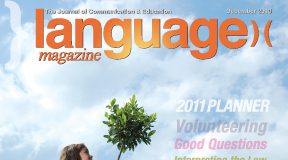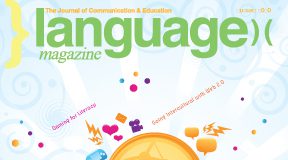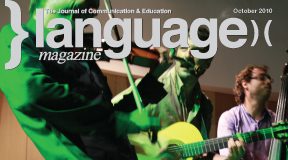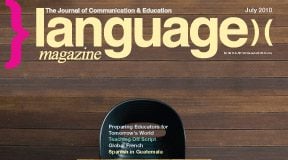Tag: 2010
December 2010
Hard Times, Higher Goals
Last month, Richard Haass, president of the Council on Foreign Relations, delivered the keynote address at the American Council on the...
November 2010
Devolve and Evolve
So often when we talk about learning, we refer only to students in educational institutions even though we know that it is...
October 2010
Willing and Ready to Learn
So often when we talk about learning, we refer only to students in educational institutions even though we know that...
September 2010
Loading the Dice
Teachers are facing unprecedented demands as they start this new academic year. Falling state tax revenues have led to education budget cuts...
August 2010
Keeping Up With Styles
As educational spending budgets are squeezed, the return on investment in educational technology is also coming under increased scrutiny. We cut...
April 2010
Free Public Education
Now that a compromised healthcare bill looks set to be pushed through Congress, the Administration has released its Blueprint for Reform to shift public attention...
March 2010
Keeping the Message Clear
President Obama’s appointment of Thelma Meléndez de Santa Ana as assistant secretary for elementary and secondary education at the Department of...












